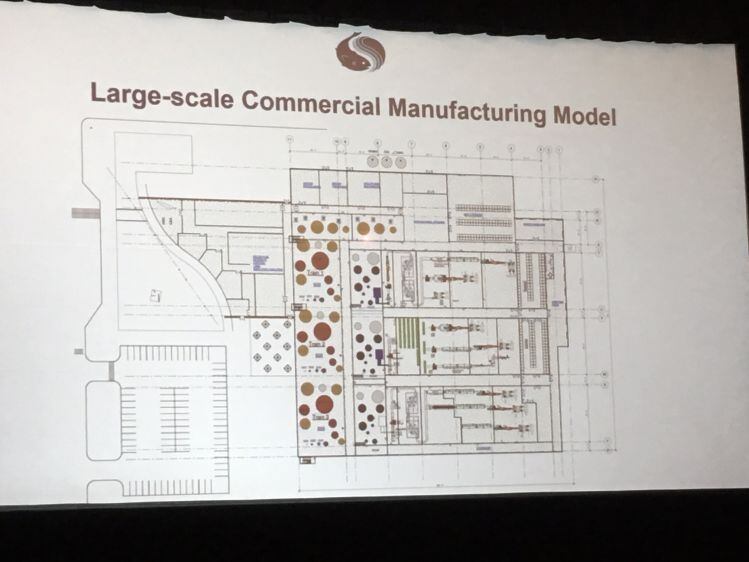“One thing has never been more clear,” Eric Schulze, PhD, VP product and regulation at cell-based meat startup Memphis Meats told delegates at the Industrializing Cell Based Meat Conference in San Francisco last week.
“The eyes of the world are upon us, our scientific work, and our words. We as an industry will not get a second chance if the products are not safe, are not perceived as such, or simply don’t taste good.
“Indeed, we’ve seen from other areas in the food industry how subpar early products can stigmatize an entire category for decades to come, or how botched regulatory strategies can result in years or even decades long delays in commercialization for all players in the space.
“A product launch that barrels through consumer or regulator concerns might work if your product is an app or a website, in this case seeking a regulatory reaction rather than a proactive dialogue. But we’re making food, and food must be safe. Full stop.”
‘What one company does or says will affect us all’
Addressing fellow start-ups in the room, he acknowledged that everyone is under pressure to move quickly, but said every player in this nascent industry will – initially at least – be judged by the behavior of any one player, especially the first to market.
“As anticipation builds, so does scrutiny. And in some key dimensions, what one company does or says will affect us all. In this respect, every employee of every cell-based meat company is speaking on behalf of not just their company, but of the entire industry.
“I humbly submit the following for consideration to every single company in this emerging industry: a product launch should only have one success criteria: does it set this industry up for success in the long term?”
BlueNalu: ‘I’m much more interested in who is first to scale this technology’

From a technological perspective, meanwhile, “being first to launch isn’t really what’s important,” added Chris Dammann PhD, CTO and co-founder at cellular aquaculture start-up BlueNalu, who said many start-ups were in a position to produce enough product for a glitzy PR launch at a restaurant, for example, but said the winners in this space will be those that can demonstrate a scalable and safe production platform.
“I’m much more interested in who is first to successfully scale this technology.”
The regulatory path forward for cell-based meat
While the devil is in the detail, the fact that the FDA and the USDA have committed to working together to create a path forward in the US for cell-based meat is very encouraging, said Dr Schulze, who used to work at the FDA.
“I believe that the government is moving with unprecedented speed and efficiency to establish clarity.”
Will state level bills hold the industry back?
While there have been a series of bills in individual states attempting to restrict the use of terms such as ‘meat’ or ‘beef’ to the flesh of animals raised and harvested in a traditional manner, these will likely be pre-empted by federal law, predicted Wiley Rein special counsel Brian Sylvester. (Under the proposed federal regulatory pathway for cell-based meat, USDA would be in charge of labeling, and as with existing meat products, as USDA pre-approves label statements, state-level challenges would presumably be pre-empted.)
Asked if he had any fears about the regulatory road ahead, he added: “It’s encouraging that US regulators are working together, but I’m concerned that certain conventional agriculture interests may push for certain onerous regulations that could draw the process out.
“Rulemaking at the federal level takes time… and you could see rules on labeling and inspections, or maybe no rulemaking at all. That’s why it’s important to stay engaged with regulators.”
Cell-cultured meat companies and Non-GMO claims

Asked by FoodNavigator-USA whether companies in the cell-cultured meat space might get into legal hot water if they make Non-GMO claims, even if their wares are not covered by the new federal definition of ‘bioengineered’ (which is very narrow), Sylvester said he would caution brands against making Non-GMO claims on labels given that there is no federal definition of ‘Non GMO,’ and such claims have been subject to civil litigation in recent years.
That said, it will all depend on what each company is doing, he said. “This will be a highly visible sector when products are commercialized. Non GMO claims could very well be made [justifiably], but I’d caution against them without knowing exactly what the production process is.”
For example, some companies are using genetic engineering techniques to ‘reprogram’ adult stem cells into induced pluripotent stem cells (iPSCs), which behave like embryonic stem cells in that they can form different cell types and proliferate almost indefinitely – although this does not necessarily require GE, and some reprogramming methods work without leaving footprint mutations in the host cell genome, noted Good Food Institute senior scientist Dr Liz Specht.
Others are using genetically engineered yeasts or other microbes to produce growth factors for cell culture media, although these yeasts might be considered processing aids, said Dr Specht.
Gene editing - which is not covered in the bioengineered food standard - could also be used to alter certain metabolic pathways to make cells more efficient at utilizing nutrients in growth media, or for other purposes, she added.
While some of these approaches would not mean that the final meat product would meet the requirements for mandatory ‘bioengineered’ labeling, they could still attract the interest of anti-GMO activists or plaintiff’s attorneys if firms make ‘Non-GMO’ claims, said some delegates, who said companies in this space need to be prepared to answer questions about genetic engineering from media and NGOs.
The clearest path to market right now is in Japan and Hong Kong
In markets outside the US, the regulatory environment for cell-based meat companies varies, with the European Commission (EC) recently stating that cell-based meat is covered by the Novel Food Regulation, a pre-market approval process whereby companies must submit a dossier (to the EC) that will be assessed by the European Food Safety Authority (EFSA).
In Hong Kong, however, if the cell-cultured meat is cooked, if can effectively go to market right now, said GFI director of international engagement Nicole Rawling. “The clearest path to market right now is in Japan and Hong Kong.”
Vitor Espirito Santo, senior scientist at JUST, said JUST was waiting for regulatory approvals to be clarified in an undisclosed country outside the US, but anticipated a launch [presumably on a tiny scale in a high-end restaurant] within three to six months.
Further reading:




